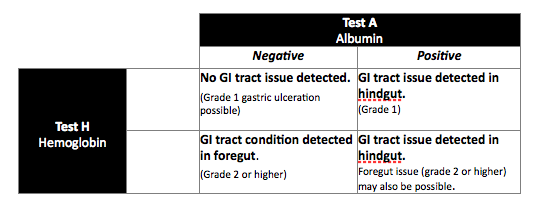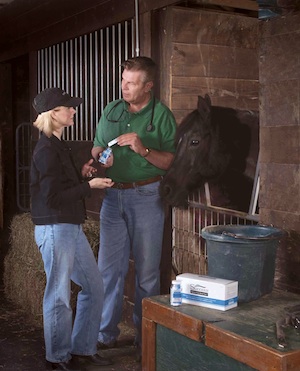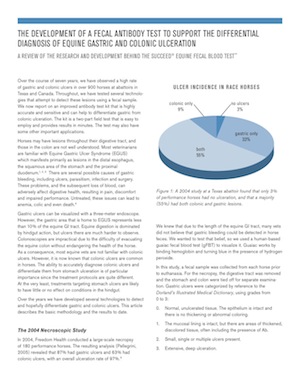November 1, 2012
Equine ulcers are endpoints of a disease stage, typically gastritis (gastric ulcer) or colitis (colonic ulcers). These lesions, or ulcers, represent syndromes in the sense that they reflect other, perhaps more extensive or serious, underlying disease states that, in turn, can lead to poor performance and impaired health.
Equine ulcers are endpoints of a disease stage,…




